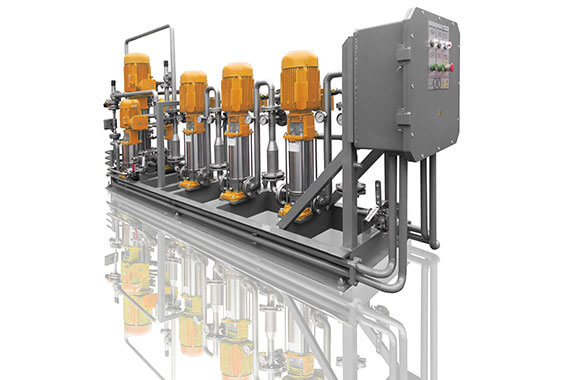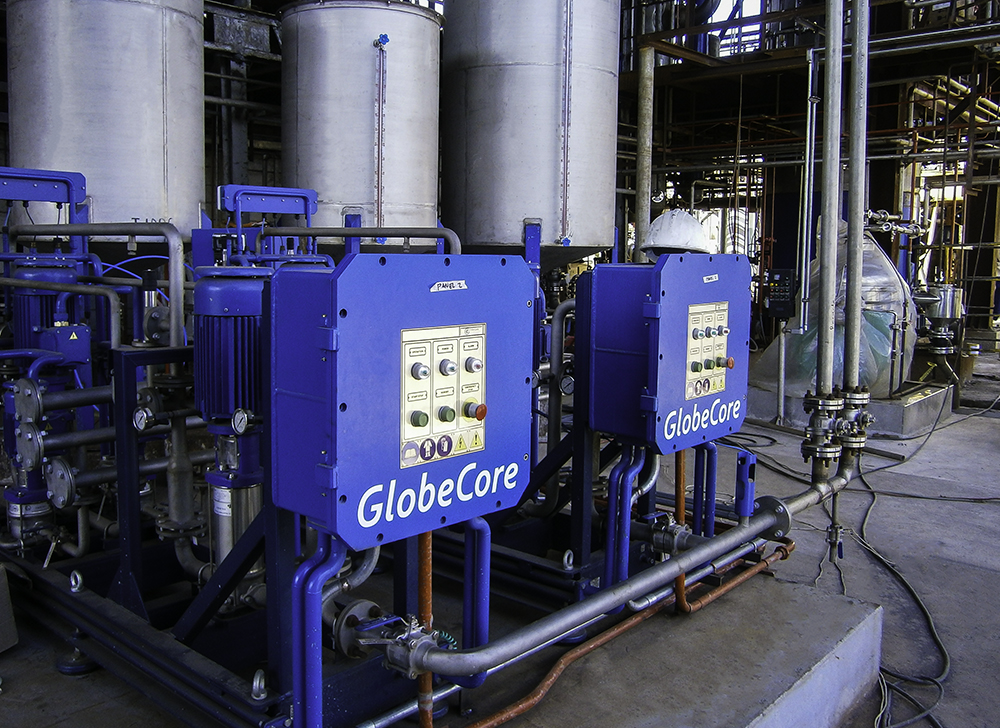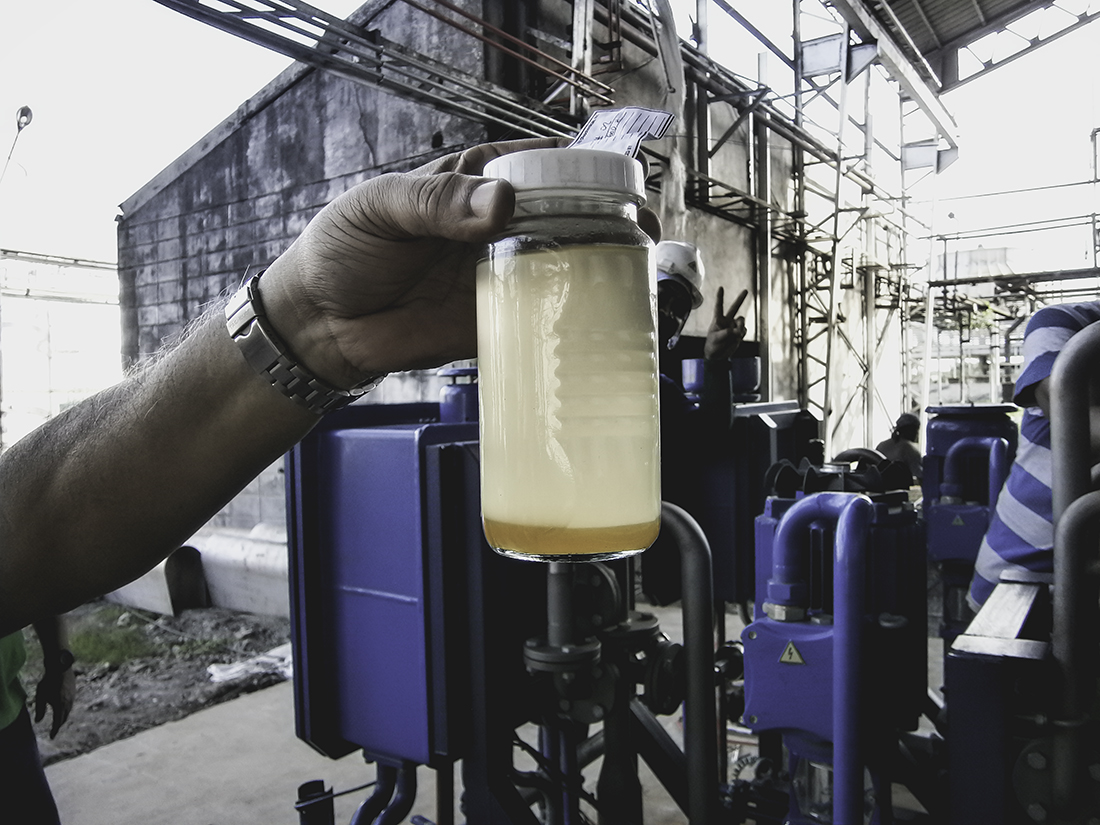USB-1 Biodiesel equipment

USB-1
-
Advantages
- Low power consumption.
Instant transesterification
With the application of the innovative energy saving technology, process power consumption decreases. - Modular architecture (mobility during transportation and flexible installation of the biodiesel equipment).
- Effective production process reduces equipment footprint.
- Biodiesel quality meets international standards.
- No waste: glycerin can be used for various purposes (e.g. generation of energy, fertilizer, etc.)
- No biodiesel washing and drying.
- increasing the quality and product yield,
- reducing power consumption,
- decreasing the amount of metal for construction.
The biodiesel production facilities operating on the GLOBECORE BLENDING technology have the following advantages:
The equipment are based on the technology of continuous reaction to increase the speed and quality of the reaction, also using 5-7 times less energy in comparison with the usual technologies and equipment.
The equipment features simplicity of operation, high efficiency; besides, due to development and continuous tests, we improve equipment design,
GlobeCore biodiesel plants (reactors) are designed for the capacity from 1000 to 16000 liters/hour, making biodiesel from any types of vegetable oils and animal fats.
It is possible to make biodiesel from waste frying oil and algae oil.
The biodiesel production plant produces biodiesel in compliance with the European EN 14214 and the American ASTM standards.
A biodiesel1Biodiesel refers to a vegetable oil- or animal fat-based diesel fuel consisting of long-chain alkyl (methyl, ethyl, or propyl) esters. production complex consists of the following major sections:
- Inline oil heater2An oil heater is a mechanism for maintaining temperatures at an acceptable level.;
- Biodiesel reactor3A chemical reactor is an enclosed volume in which a chemical reaction takes place.;
- Biodiesel settling section;
- Methanol4 Methanol, also known as methyl alcohol among others, is a chemical with the formula CH3OH (a methyl group linked to a hydroxyl group, often abbreviated MeOH). recovery section;
- Purification and filtration5Filtration is any of various mechanical, physical or biological operations that separate solids from fluids (liquids or gases) by adding a medium through which only the fluid can pass. section.
Prepared (purified) oil is supplied to the heater, where it is warmed up to the process temperature. From the heater, the oil is supplied to the biodiesel reactor. A solution of alkali6 In chemistry, an alkali is a basic, ionic salt of an alkali metal or alkaline earth metal chemical element. and methanol is also supplied to the reactor at the same time. The ingredients are mixed in the the reactor’s hydrodynamic mixer7A hydrodynamic mixer is a device which facilitates mixing of liquids on molecular level., and the product of the reaction is crude biodiesel (fatty acid methyl ester8 In chemistry, an ester is a chemical compound derived from an acid (organic or inorganic) in which at least one –OH (hydroxyl) group is replaced by an –O–alkyl (alkoxy) group. with water and glycerin9Glycerine is a simple polyol compound. It is a colorless, odorless, viscous liquid that is sweet-tasting and non-toxic. The glycerine backbone is found in many lipids which are known as glycerides.). This product is then pumped to the settling tanks, where water and glycerin are separated and removed.
The remaining product is pumped to the methanol recovery section, where methanol is distilled from the mix. The final stage is the filtration and purification section, where the product passes through ion-exchange resin10An ion-exchange resin or ion-exchange polymer is a resin or polymer that acts as a medium for ion exchange. It is an insoluble matrix (or support structure) normally in the form of small (0.25–0.5 mm radius) microbeads, usually white or yellowish, fabricated from an organic polymer substrate. to remove residual traces of methanol. Filters remove any remaining solid particles.
Primary specification of the system:
|
Parameter |
Value |
| Capacity, m3/hour |
4 |
| Explosion protection class, |
II2GEExdIIBT3 |
| Power supply voltage at 3 phase VAC, V |
380 |
| Compressed air control pressure, MPa |
0.6-0.8 |
| Settling tank volume, m3 |
20.8 |
| Filtration fineness, micron |
5 |
The biodiesel production facilities operating on the GLOBECORE BLENDING technology have the following advantages:
- Low power consumption.
Instant transesterification
With the application of the innovative energy saving technology, process power consumption decreases. - Modular architecture (mobility during transportation and flexible installation of the biodiesel equipment).
- Effective production process reduces equipment footprint.
- Biodiesel quality meets international standards.
- No waste: glycerin can be used for various purposes (e.g. generation of energy, fertilizer, etc.)
- No biodiesel washing and drying.
The equipment are based on the technology of continuous reaction to increase the speed and quality of the reaction, also using 5-7 times less energy in comparison with the usual technologies and equipment.
The equipment features simplicity of operation, high efficiency; besides, due to development and continuous tests, we improve equipment design,
- increasing the quality and product yield,
- reducing power consumption,
- decreasing the amount of metal for construction.
GlobeCore biodiesel plants (reactors) are designed for the capacity from 1000 to 16000 liters/hour, making biodiesel from any types of vegetable oils and animal fats.
It is possible to make biodiesel from waste frying oil and algae oil.
The biodiesel production plant produces biodiesel in compliance with the European EN 14214 and the American ASTM standards.
Equipment configurations that are not included in this configurator can be implemented via a separate request to [email protected].
USB-1 units can be used for:
- production of biodiesel from sunflower oil;
- production of biodiesel from rapeseed oil;
- production of biodiesel from soybean oil;
- production of biodiesel from palm oil;
- production of biodiesel from coconut oil;
- production of biodiesel from corn oil;
- production of biodiesel from flaxseed oil;
- production of biodiesel from mustard seed oil;
- production of biodiesel from peanut oil;
- production of biodiesel from olive oil;
- production of biodiesel from Chlorella microalgae oil;
- production of biodiesel from Jatropha seed oil;
- production of biodiesel from walnut oil;
- production of biodiesel from pork fat;
- production of biodiesel from chicken fat;
- production of biodiesel from beef fat;
- production of biodiesel from codliver oil;
- production of biodiesel from mutton fat;
- production of biodiesel from waste deep-frying oil.





